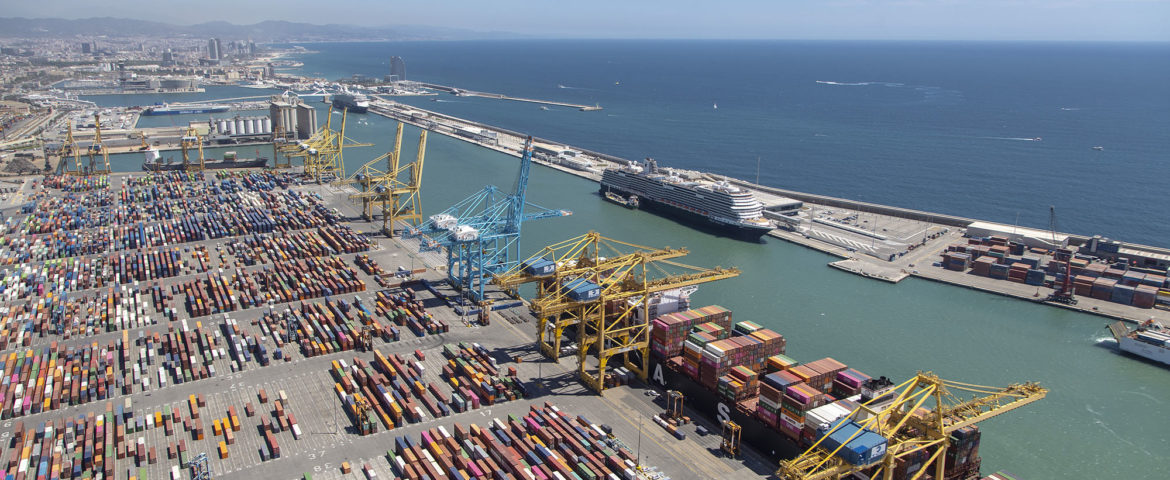The Coronavirus is having a huge global impact, and Peter de Langen questions whether the effects of COVID-19 on ports will be lasting ones – with his views first published in his Analyst column at @ Port Strategy.
Lasting effects of Coronovirus on ports?
by Peter de Langen
 “The Coronavirus clearly is having a huge global impact, most importantly through affecting the health of millions of people and the loss of human lives.
“The Coronavirus clearly is having a huge global impact, most importantly through affecting the health of millions of people and the loss of human lives.
The economic impact is also substantial – small businesses suffer, freelance workers, lose incomes and the stock markets are plummeting, amongst others negatively affecting pension funds. The virus also has an immediate impact on ports, with volumes substantially lower (in some Chinese ports volumes in February were down >20% compared to February 2020). Is the virus also going to have a longer-lasting effect on the ports industry?
That question is hard to answer, but often the idea of recovery from a crisis and the return of the ‘normal’ turns out to be wrong. The port infrastructure of Kobe was rebuilt after the earthquake in 1995, but the port never recovered the central position it previously had in shipping networks. The Ceres Container Terminal in Amsterdam, after a very difficult start, attracted shipping lines in 2007 and 2008 but never recovered from the economic and financial crisis 2008-2009.
So what may be lasting impacts of the Coronavirus for ports and shipping? First, the mismatch between supply and demand, i.e. too much terminal and shipping capacity, is likely to last for years, as the growth path of demand that was assumed prior to COVID-19 will not materialize.
The mismatch between supply and demand, i.e. too much terminal and shipping capacity, is likely to last for years, as the growth path of demand that was assumed prior to COVID-19 will not materialize.
Second, the virus may accelerate the rise of e-commerce. As shops are closed, e-commerce thrives and especially elderly that normally are lagging in the use of e-commerce turn to it to avoid busy places. Once the crisis is over, their new online habits may stay. This affects the logistics operations in ports.
Third, the trend of ‘local for local’ may be re-enforced. In many cities, there are initiatives to help out struggling small local businesses by purchasing locally. This may also have lasting effects, which may somewhat reduce international trade, for instance of food products.
Finally, multinational companies may reconsider their supply chain design. The Coronavirus underlines the case for more resilience and also has made clear the dependence of many supply chains on activities carried out in or managed from China. A re-design of supply chains by definition affects international trade and thus ports. All in all, enough reason not to assume the return of business as usual once the virus has been brought under control.”
“.
First published at Port Strategy












